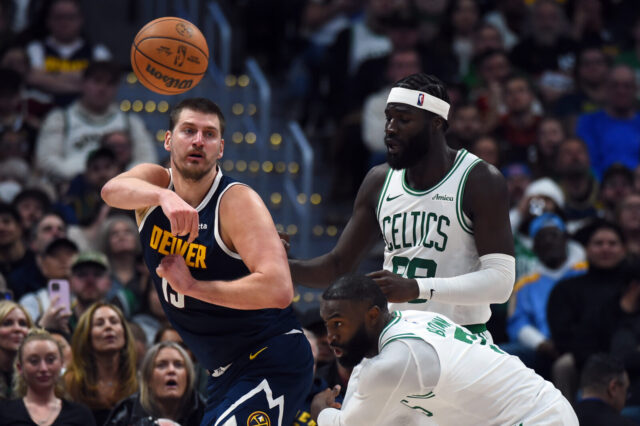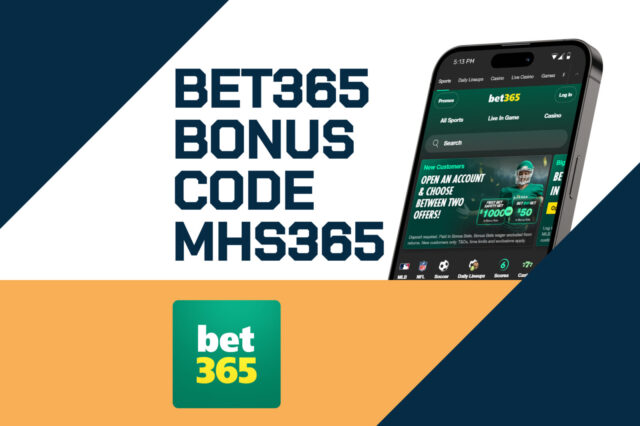The coaching candidates continue with a look at two former head coaches in Nate McMillan and Mike Malone.
Nate McMillan
Experience: McMillan coached the Seattle Supersonics for 5 seasons, leading them to the playoffs twice including a trip to the conference semi-finals in 2005. He also coached the Portland Trailblazers for 7 seasons, helping re-establish the Trailblazer’s reputation following the “Jailblazers” era. He led the Blazers to the playoffs in 3 of his 7 seasons. In 2008-09, he led the team to a franchise record 113.9 ORtg and 54 wins. He has also worked with USA Basketball where he has helped the team win gold medals in 2008 and 2012.
Style: McMillan’s teams played a very slow, deliberate style, playing at a pace between 87 and 90 possessions per game according to Basketball-Reference.com. He puts a lot of trust in his star players and very little trust in his role guys. Brandon Roy and LaMarcus Aldridge were often given the freedom to iso and create shots while the other guys on the court were kept on a tight leash. Both the Sonics and the Blazers achieved some level of success with this rigid style of offense although rarely were his teams better than average offensively.

His sideline and locker room presence is best described by Teddy Roosevelt’s famous quote, “Speak softly but carry a big stick.” McMillan rarely loses his temper and isn’t a sideline screamer yet he is best known for being a very strict, by the book, no nonsense coach. He’s been known to instigate strict uniform and headband rules, and will bench guys for breaking team rules that other coaches sometimes let slide. In many ways, he’s an old school coach.
McMillan isn’t the type of guy to go out of his way to appease players or change his style to fit their preference. That strict style of leadership clashed with players like Zach Randolph, Darius Miles, and Andre Miller. Miller in particular hated McMillan’s inflexible offense which didn’t allow any room for his creative playmaking.
Adam’s Opinion: McMillan’s style of leadership and coaching philosophy are probably losing their effectiveness in today’s NBA. Many people will compare McMillan’s strict style to Greg Popovich but that comparison is far off of the mark. Pop gives his players a lot of trust and freedom inside a system. He openly asks players for input and opinions and he molds his game plan to fit his team. McMillan is only similar in his belief in the need for discipline. More importantly, Pop places a lot of trust and responsibility in his role players. Everyone is trusted and even expected to make plays within the flow of the offense.
McMillan’s style also clashes with the ideal Denver offense in that he prefers a very slow, deliberate offense. His team’s placed a lot of value on keeping turnovers very low, even at the expense of things like ball movement. Brian Shaw seemed to have a similar disposition toward low risk, low reward offense and that is part of the reason that Ty Lawson had the ball in his hand so much.
Perhaps just as important as the effectiveness of this offensive theory is that his style just isn’t very fun to watch. The team would get into low scoring, low action battles that grinder to a halt down the stretch. Ultimately, I’m not a fan of McMillan. McMillan replaced Brian Shaw in Indiana as the lead assistant. I don’t think he should replace Brain Shaw again.
 Must Reads
Must Reads 
 Must Reads
Must Reads 
Mike Malone
Experience: Malone went the traditional route toward landing his first head coaching job, working his way up the ranks as an assistant. He got his start with the Knicks in 2001 and worked under several head coaches during his time there. In 2005 he joined Mike Brown in Cleveland as the team’s defensive assistant coach. The Cavs became a defensive force during his tenure, ranking in the top 7 in DRtg three of his five years with the team. He joined the New Orleans Hornets in 2010, again as a defensive assistant and again helped the team improve defensively. In one season with the Hornets, the team had the biggest year-to-year improvement in DRtg and made the playoffs.
In 2011, Malone joined Mark Jackson’s staff in Golden State, allegedly as the highest paid assistant in the NBA (coaching salaries are not always made public). It was apparently money well spent as Malone helped build defensive principles that transformed the Warriors into a respectable defensive team over the course of his two seasons with the team despite injuries to Andrew Bogut. In 2012, Malone was voted the best assistant coach by NBA General Managers.
Malone became head coach of the Sacramento Kings in 2013, one of the very first hires by new owner, Vivek Ranadive. Malone was hired two weeks before former Nuggets assistant GM Pete D’Alessandro was hired as General Manager. Malone helped improve the team’s DRtg from 29th in 2013 to 23rd in 2014. The team was 19th in DRtg under Malone to start this season but was abruptly fired under strange circumstances.
Style: Malone is obviously a defensive minded coach. His teams tend to play relatively conservatively on the perimeter while focusing on taking away the paint. People around the league had great respect for Malone as a defensive mind and he had earned a reputation around the league as someone who was always well prepared with scouting reports. He would anticipate late game situations and opposing team inbound plays or tendencies.
He had a reputation as having a hot temper and a volatile personality which was rumored to be why he wasn’t offered a head coaching position sooner. He improved on his temper and as a head coach the guys in the locker room seemed to like him. DeMarcus Cousins was very vocal in opposing Malone’s ousting and Rudy Gay spoke positively of Malone when he signed an extension in the summer of 2014.
While he was only a head coach of the Kings, all of Malone’s teams have played a fairly slow pace. Coming into the Kings coaching position, Malone stressed defense as his first priority and rebounding as his second priority. He accomplished both goals as the Kings were 1st in the league in REB% when Malone was let go. In that same press conference Malone mentioned wanting to “become a running team but to run with discipline.“
Adam’s Opinion: In researching coaches for this series, one of the biggest takeaways is how frequently a rookie coach is given a difficult situation. Malone might be the poster child for this since his first coaching gig came with one of the most dysfunctional organizations, under a brand new owner who is trying to reinvent every aspect of the game, and under a rookie general manager who never wanted him in the first place.
Despite picking an awful situation to jump into, Malone did a pretty great job making the Kings the surprise team of 2014-15 season. His firing had little to do with his success or failure as a coach and more to do with the direction that the front office wanted to go. Vivek reportedly pitched Malone on the idea of playing 4-on-5 for stretches of the game, a strategy that he came up with while coaching his daughters. As an NBA basketball coach, Malone had to feel insulted that his boss, who had no serious basketball experience, wanted to give him such unconventional advice.
Nonetheless, I am still not sure Malone is a great fit in Denver. His style is a bit more grit and grind than it is seven seconds or less and that neither fits the Nuggets current roster or their aspirations down the road. Malone’s comments about wanting to run but with discipline are eerily similar to Shaw’s comments when he was introduced in 2013. Shaw said, “Obviously we will still want to attack and get up and down the floor, but the ability to play in the half court and execute in the half court because that is where you get judged on in the playoffs.” In both cases, the coaches seem to be merely paying lip service to fast break basketball while at the same time revealing that they can’t stomach even the slightest bit of freelancing on offense.
Then there is the issue of Malone’s assistants. One of the first signs of discord between Vivek and Malone was that Malone didn’t surround himself with great assistants. Vivek reportedly wanted Alvin Gentry alongside Malone in 2013. Perhaps Malone felt threatened to have such an experienced assistant next to him or was worried that having Gentry there would make it easier for Vivek to replace him if things went south. Malone hired Ty Corbin, a move that may have been as much about job security as it was about improving his team’s chances. It’s hard to blame him, especially in hindsight. Perhaps he saw the writing on the wall when he accepted the job and tried to stack the deck in a way that would provide a bit more job security. If he were to come to Denver, I think it’d be imperative that the Nuggets surround him with great assistants, especially on the offensive end.
The public rushed to Malone’s defense when he was fired and rightfully so. He was given a difficult hand, played it very well, and was still given the axe by management. I would bet money that Malone is the type of guy that improves every year as a head coach and becomes a very good coach if given a new opportunity where he has room to grow. He seems to have a smart basketball mind and a willingness to improve himself. Those qualities can’t be discounted. Nonetheless, the jury is still out. He might just be a guy that is one of the league’s best assistants. A guy that can come in and reinvigorates a defense or helps a rookie head coach learn the ropes. Ultimately, I’m not sold that he’d be great for the Nuggets and I’m not sold that he’d be bad. He’s just probably not the guy for Denver.
This content is no longer available.


